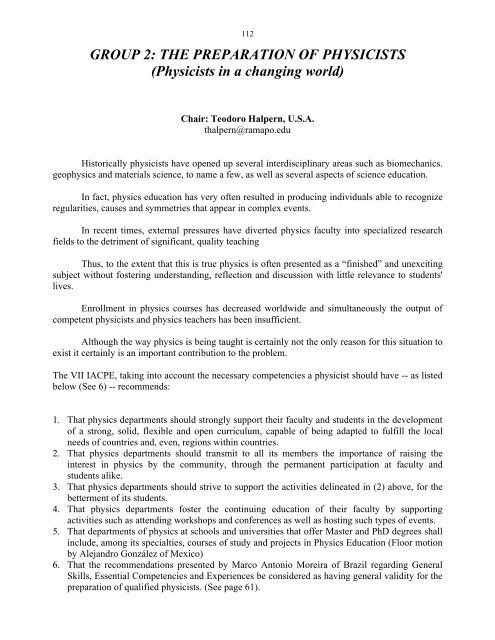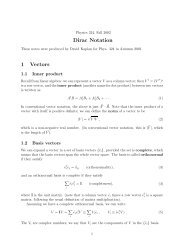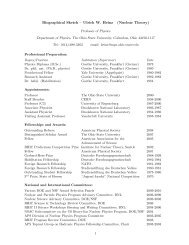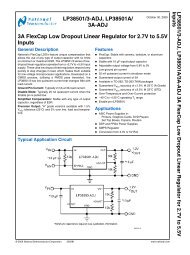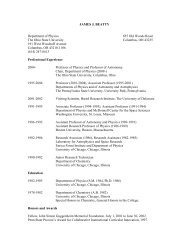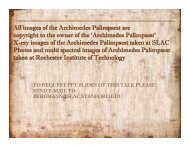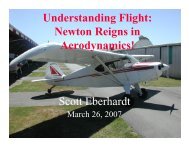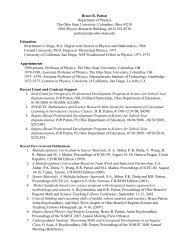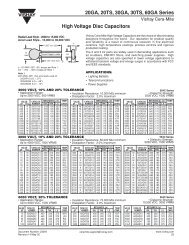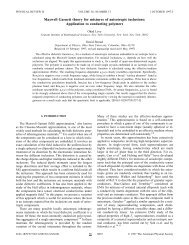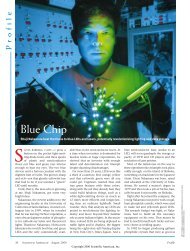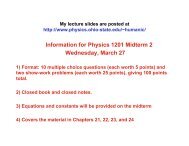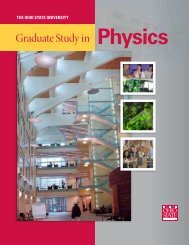Brasil Final Report - Department of Physics - The Ohio State University
Brasil Final Report - Department of Physics - The Ohio State University
Brasil Final Report - Department of Physics - The Ohio State University
You also want an ePaper? Increase the reach of your titles
YUMPU automatically turns print PDFs into web optimized ePapers that Google loves.
112<br />
GROUP 2: THE PREPARATION OF PHYSICISTS<br />
(Physicists in a changing world)<br />
Chair: Teodoro Halpern, U.S.A.<br />
thalpern@ramapo.edu<br />
Historically physicists have opened up several interdisciplinary areas such as biomechanics.<br />
geophysics and materials science, to name a few, as well as several aspects <strong>of</strong> science education.<br />
In fact, physics education has very <strong>of</strong>ten resulted in producing individuals able to recognize<br />
regularities, causes and symmetries that appear in complex events.<br />
In recent times, external pressures have diverted physics faculty into specialized research<br />
fields to the detriment <strong>of</strong> significant, quality teaching<br />
Thus, to the extent that this is true physics is <strong>of</strong>ten presented as a “finished” and unexciting<br />
subject without fostering understanding, reflection and discussion with little relevance to students'<br />
lives.<br />
Enrollment in physics courses has decreased worldwide and simultaneously the output <strong>of</strong><br />
competent physicists and physics teachers has been insufficient.<br />
Although the way physics is being taught is certainly not the only reason for this situation to<br />
exist it certainly is an important contribution to the problem.<br />
<strong>The</strong> VII IACPE, taking into account the necessary competencies a physicist should have -- as listed<br />
below (See 6) -- recommends:<br />
1. That physics departments should strongly support their faculty and students in the development<br />
<strong>of</strong> a strong, solid, flexible and open curriculum, capable <strong>of</strong> being adapted to fulfill the local<br />
needs <strong>of</strong> countries and, even, regions within countries.<br />
2. That physics departments should transmit to all its members the importance <strong>of</strong> raising the<br />
interest in physics by the community, through the permanent participation at faculty and<br />
students alike.<br />
3. That physics departments should strive to support the activities delineated in (2) above, for the<br />
betterment <strong>of</strong> its students.<br />
4. That physics departments foster the continuing education <strong>of</strong> their faculty by supporting<br />
activities such as attending workshops and conferences as well as hosting such types <strong>of</strong> events.<br />
5. That departments <strong>of</strong> physics at schools and universities that <strong>of</strong>fer Master and PhD degrees shall<br />
include, among its specialties, courses <strong>of</strong> study and projects in <strong>Physics</strong> Education (Floor motion<br />
by Alejandro González <strong>of</strong> Mexico)<br />
6. That the recommendations presented by Marco Antonio Moreira <strong>of</strong> Brazil regarding General<br />
Skills, Essential Competencies and Experiences be considered as having general validity for the<br />
preparation <strong>of</strong> qualified physicists. (See page 61).


